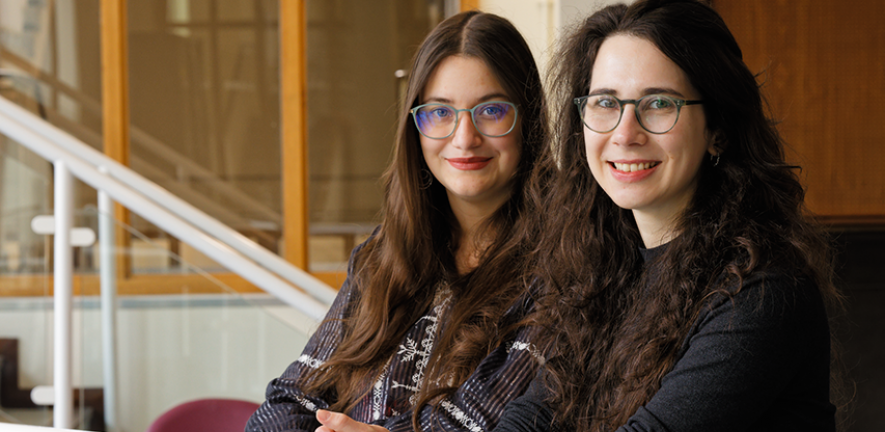
As postgraduate representatives, their main responsibilities have included representing postgraduate students at Postgraduate Education Committee (PEC) meetings, ensuring that student concerns are brought to the Department and actively addressed. They also have regular meetings with the postgraduate education team to discuss student issues and, for example, worked on responses to the annual postgraduate survey. This involved not only addressing key concerns raised by students but also ensuring that they were informed about how their feedback was being used.
Dorothea, a final-year postgraduate student in the Klenerman Group, focuses on the development of single-molecule techniques to study tau protein aggregates. Her research aims to achieve a better understanding of the molecular mechanisms behind Alzheimer’s disease and other neurodegenerative diseases.
Dorothea comments: “I started my PhD in Lent term during COVID, a time when many of the usual support structures and student networks were disrupted. The lack of in-person events made it harder for new PhD students to navigate the Department, connect with peers and find the resources they needed.
“I wanted to ensure that future postgraduate students had a smoother transition, with better access to clear information, support systems and a stronger student community. Becoming a postgraduate representative allows me to advocate for these needs while helping to improve communication between students and the Department.”
Ioana is a 2nd-year PhD student in the Phipps Group who is working on enantioselective catalysis using transition metals. Her research develops new reactions that could make chemical synthesis more wide-ranging, sustainable and cost-efficient.
Ioana comments that: “I truly believe that education shapes society and it’s our duty as students to be responsibly proactive in securing the best possible development. In my role as postgraduate representative I am trying to consider whether the services and opportunities the students are provided with are up to the highest standards.”
Dorothea adds: “Overall, serving as a postgraduate representative has been a rewarding experience, providing valuable insight into student advocacy but also into the workings of the Department. I hope that my contributions have helped improve the postgraduate experience.”
This article was originally published in Chem@Cam magazine Issue 70.

